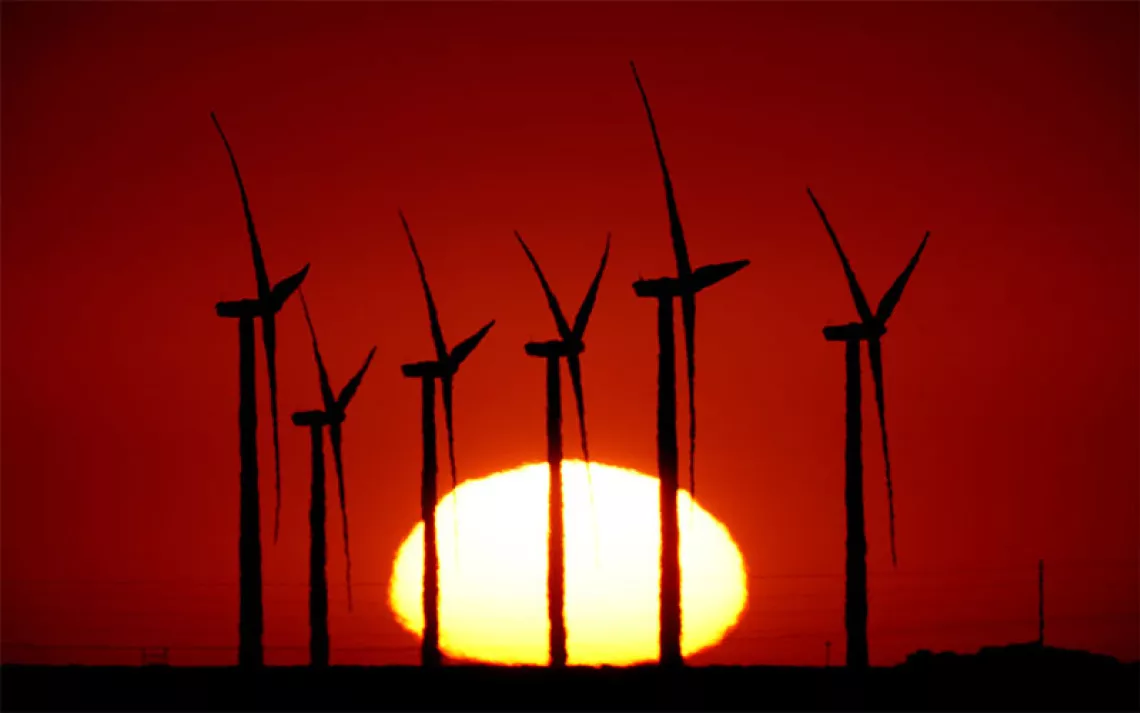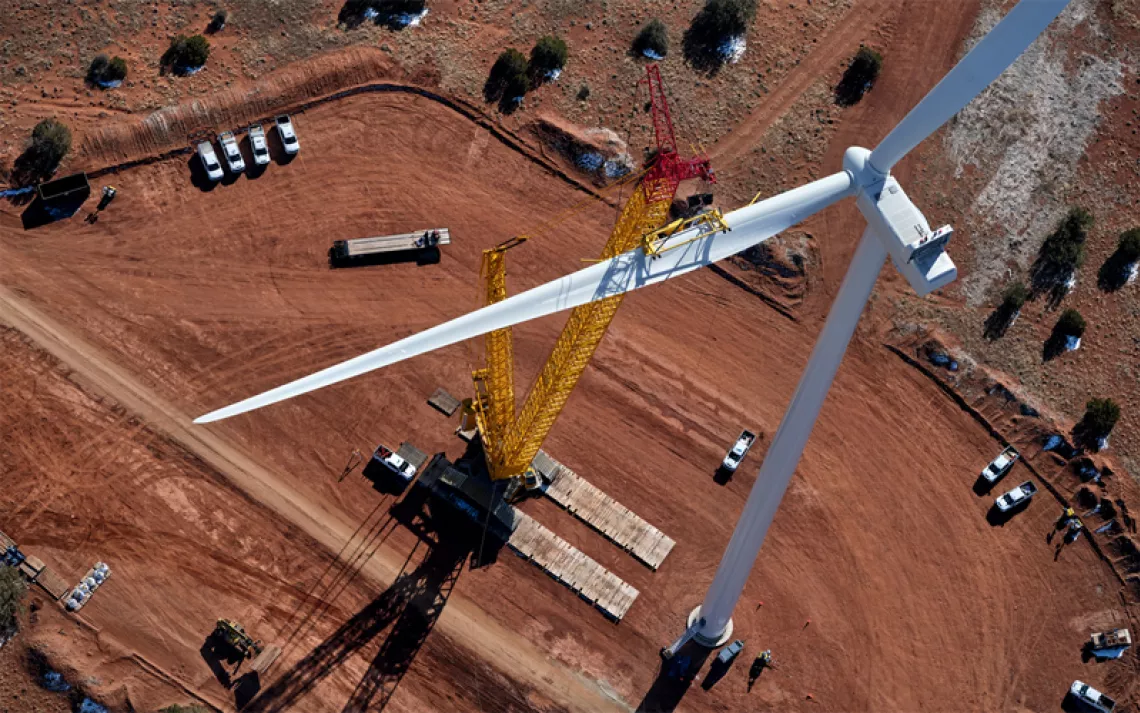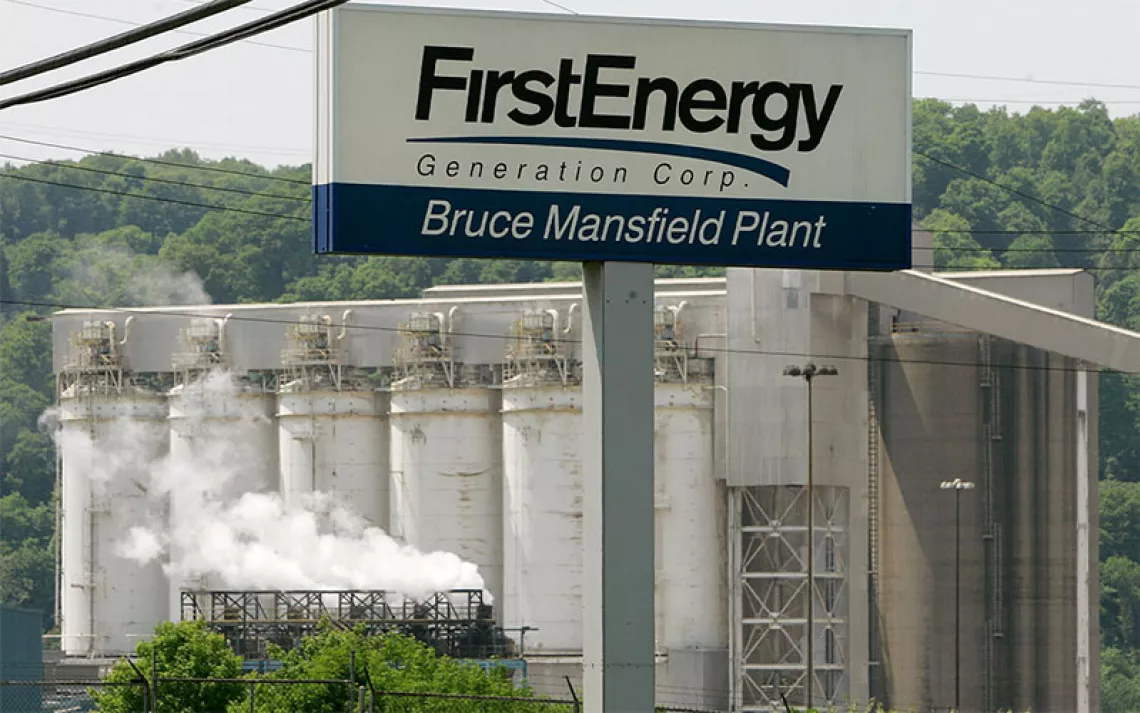This Is How a Business Weathers the COVID Crisis
Alejandro Aviles says taking care of his all–Puerto Rican workforce comes first

Alejandro Aviles, owner of Aviles Construction in Cleveland. | Photo by Ken Blaze
Coming from a blue-collar background in Cleveland, Ohio, it was all just work, work, work. I was never involved with “save the planet” this or that. But working on federal energy-saving programs, I learned a lot about conservation. Now it’s one of the reasons I feel good about what I do.
Aviles Construction is a company that contracts with the government on low-income energy-efficiency programs. We are a 100 percent Puerto Rican company. For the most part, our workers come to Cleveland with no skills whatsoever, except how to work on cars and stuff like that. We teach them how to do HVAC, electrical, insulation, water-conservation installs, and everything else. It’s like a technical school where we pay them to learn these skills. Some of the guys get homesick and go back to Puerto Rico, but most of them stay. Everybody who works for me has been with me for at least 10 years.
My dad started this business in 1983, doing rehabs for the city of Cleveland. Then the weatherization program started up. He didn’t really train his guys; he was more like, “You’re good to go. Get to work.” When I got here after college in 2000, I took it up a notch. I gave guys incentives to learn. They were just this ragtag group of construction guys with beat-up trucks, but once you gave them the opportunity to move forward, they took off.
We had steady business up until 2008, when the housing market crashed. I was looking into how to close the business and go back to school to study law, but then the Obama administration’s stimulus got passed with grants for energy-efficiency programs, and business went the other way—we got slammed!
Energy efficiency is still booming in Ohio. Whenever anyone in Cleveland gets accepted for the federal Home Energy Assistance Program, we automatically go in to insulate their house. Now I’ve got 22 employees, making from $12 to $23 an hour. It’s pretty hard work, crawling around in an attic when it’s 30 degrees—or 120—and you’re blowing insulation. I’m always scared I’m going to lose them, so I try to treat them well. I pay their health insurance.
A lot of the work we do is in really poor neighborhoods. In East Cleveland, one of the poorest cities in the whole country, they have a street they used to call Millionaires Row—the Rockefellers had a house there. Now the people living in those houses are like the 80-year-old lady whose husband died 10 years ago and who is heating a three-story monstrosity on her social security check. The houses are run-down, and the furnaces are huge; heating can easily cost $1,000. But we can get them up to 95 percent efficiency, and the heating bill comes way down.
Before everything shut down because of the COVID-19 pandemic, we were replacing two or three of those old, inefficient, damaging-to-the-environment furnaces every day. On March 23, the governor announced that everyone would be eligible for unemployment benefits, so we canceled all jobs and laid everyone off. We could have milked the “essential business” stuff and said we were construction, but I was like, “Man, I know how easy it is to spread this.” We do a lot of lead and asbestos abatement, and we follow the exact same protocols you would with a virus: You wear gloves and a mask. You walk out and take off all your clothes, shower, and walk into another room where you put clean clothes on, and it’s still not 100 percent guaranteed that you’re going to contain all the asbestos fibers or lead.
It’s been such a crazy time. I’m divorced with two kids, and I’m homeschooling. I’m doing OK because I’m not in debt, and checks from jobs we did months ago are still coming in.
I had this one guy—we put in all this effort for him, did the boring work to get him on unemployment, and it was taking such a long time. He was like, “Hey, maybe I should just sign up to do DoorDash or something?” I was like, “No, just relax. Stay at home. Be safe.” Finally, he started getting his unemployment. A couple of days ago, I sent out feelers to see when we should start working again. He’s like, “Man, I don’t know. We should really take our time. Make sure everything’s safe before we go.” I’m glad I made it as easy as possible for my guys to stay home and be safe.
This article appeared in the September/October 2020 edition with the headline "Safety First."
This article was funded by the Sierra Club’s Beyond Coal campaign.
 The Magazine of The Sierra Club
The Magazine of The Sierra Club



